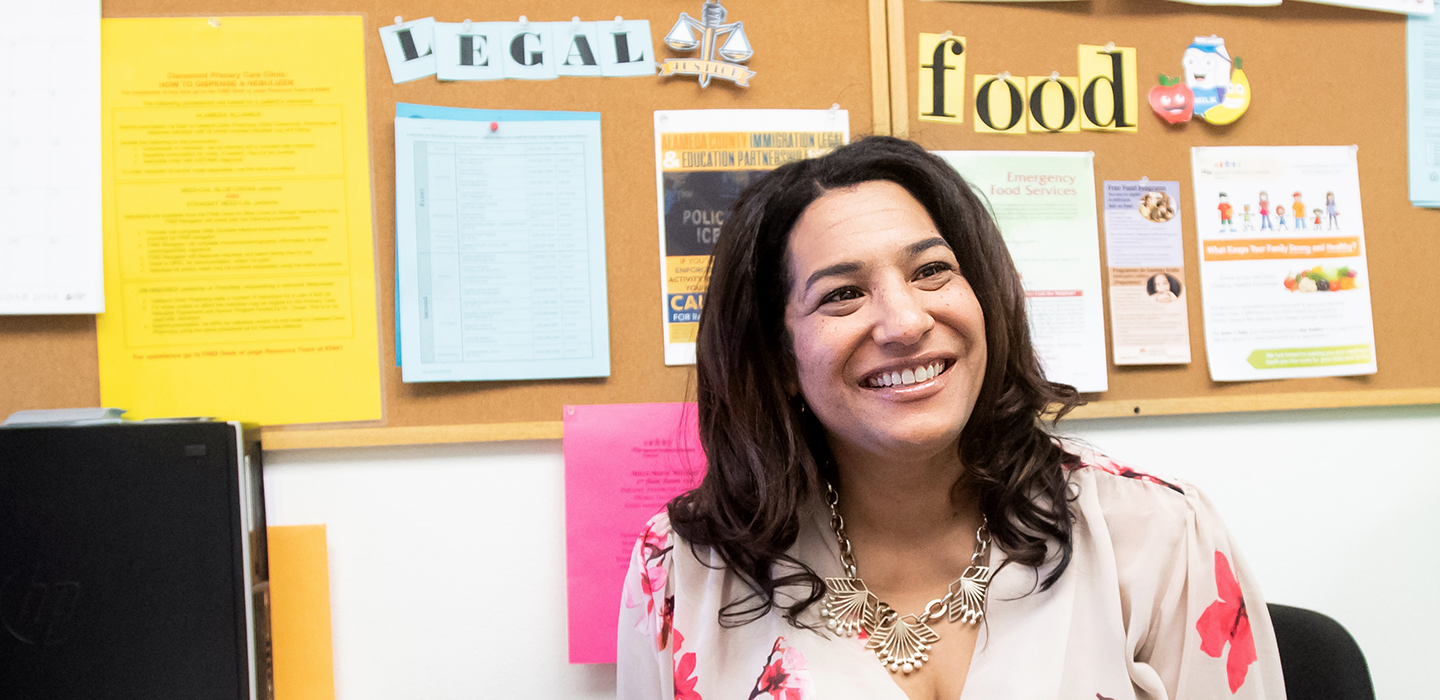How We Help Kids Overcome Toxic Stress
Our research on childhood trauma led to a screening tool now used statewide.

Homelessness, neglect, malnutrition, and violence have long been known to cause toxic stress levels in childhood that harm developing brains and bodies.
Dayna Long, MD, medical director for the Department of Community Health and Engagement at UCSF Benioff Children's Hospital Oakland considers it unacceptable that some children face worse health outcomes simply because they were dealt a bad hand. She’s committed to using health care settings as a buffer against toxic stress in order to help kids achieve better outcomes.
"I breathe this work every single day. It is always on my mind," Long said. "I became dissatisfied and restless simply giving vaccines or prescribing medications without addressing the root cause of the problem."
Led by Long and her colleagues at UCSF Benioff Children’s Hospitals and partner institutions, clinicians and researchers took a deep dive into how the stress produced by adverse childhood experiences (ACEs) influences lifelong changes in children’s genetics and health.
The result was PEARLS (Pediatric ACEs and Related Life-Events Screener). The PEARLS tool screens and measures children for experiences in their daily environment that can cause stress.
PEARLS was based on a multipronged study screening kids for toxic stress through parent surveys during regular primary care visits. At a subsequent visit, blood and other specimen samples were collected in order to investigate how stress may affect a number of key biological factors, including hormone levels, gut health, and immune response.
Finally, patients enrolled in the study who screen positively for early trauma and toxic stress were randomly assigned to receive tailored interventions through the FIND Program or a pilot group therapy-based resiliency clinic to help address the underlying stress and environmental challenges.
In 2020, PEARLS was adopted as a state-wide screening tool for Medi-Cal patients to help pediatricians identify ACEs that can lead to increased health risks in their patients. It is the only tool of its kind to qualify for pediatric Medi-Cal payments.
In California alone, PEARLS is now available to 8,800 clinics and almost 100,000 physicians, with the potential to reach 7 million children on Medi-Cal.
"Identifying children who are exposed to adversity early on in life, we can try to reduce their chances of incurring harmful health consequences as adults,” Long said. “The state’s support of this tool alongside payments for screening will go a long way to incentivize providers to screen all patients for ACEs."